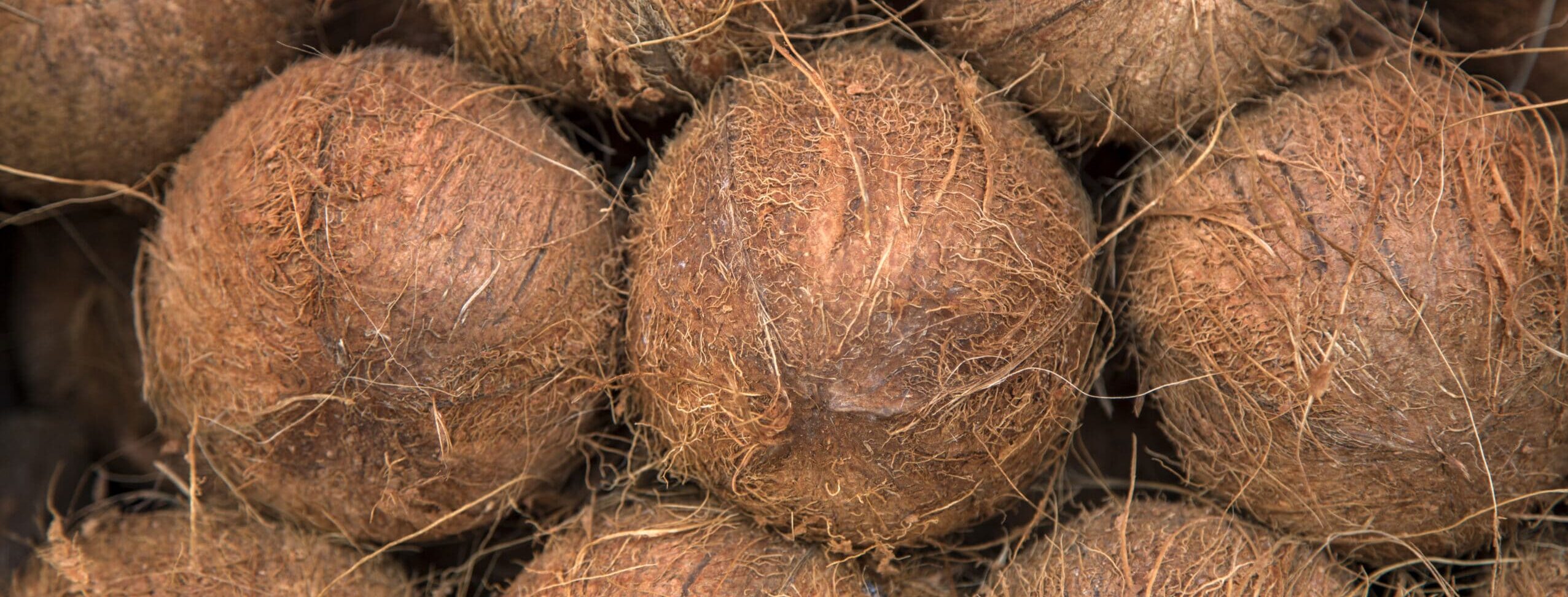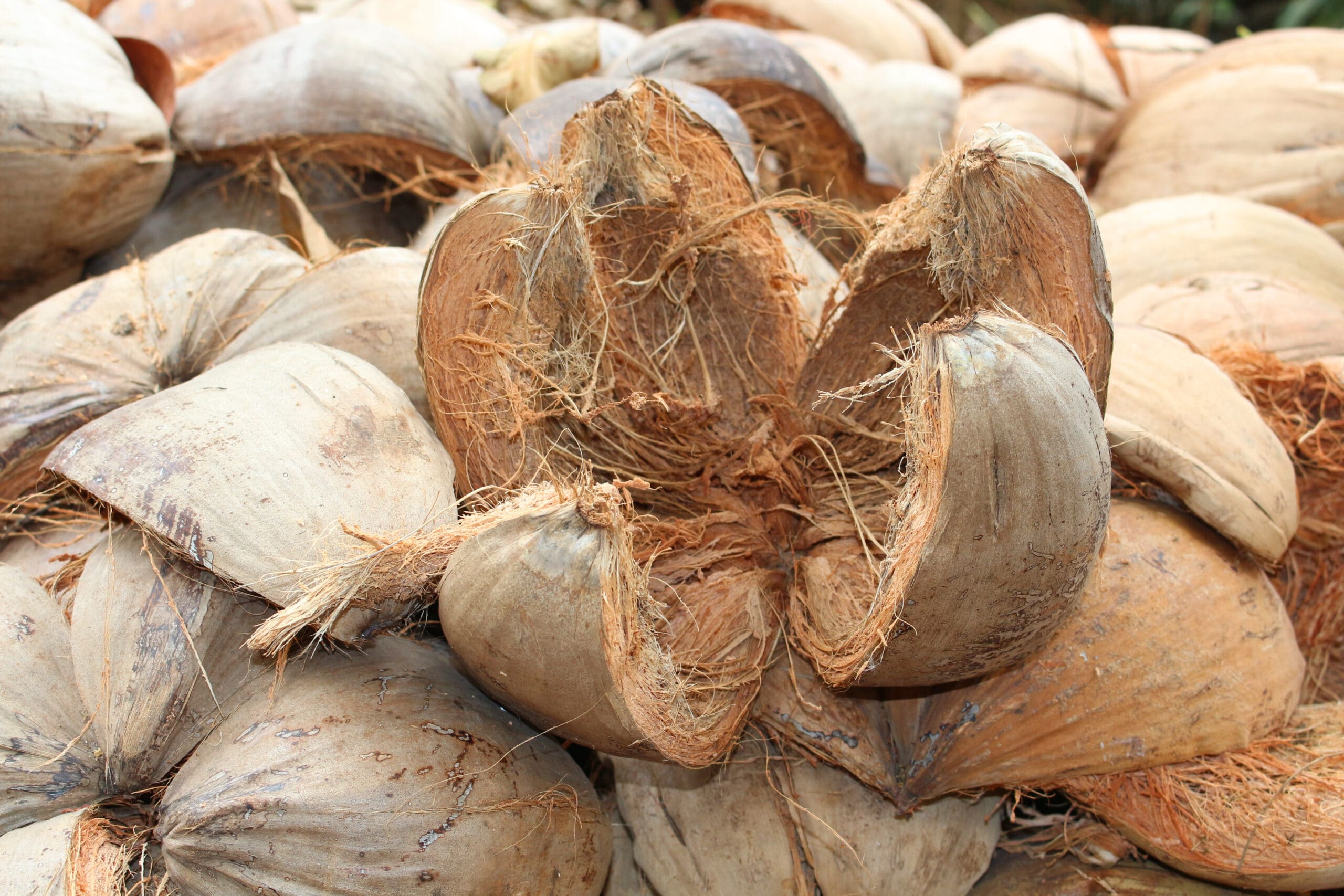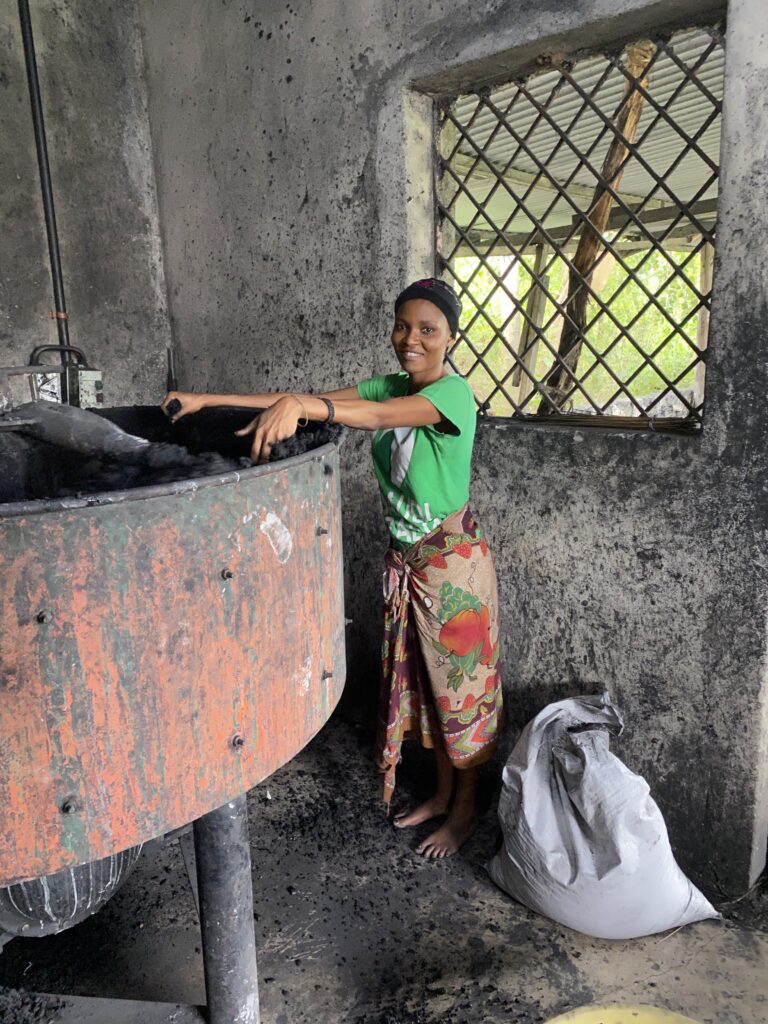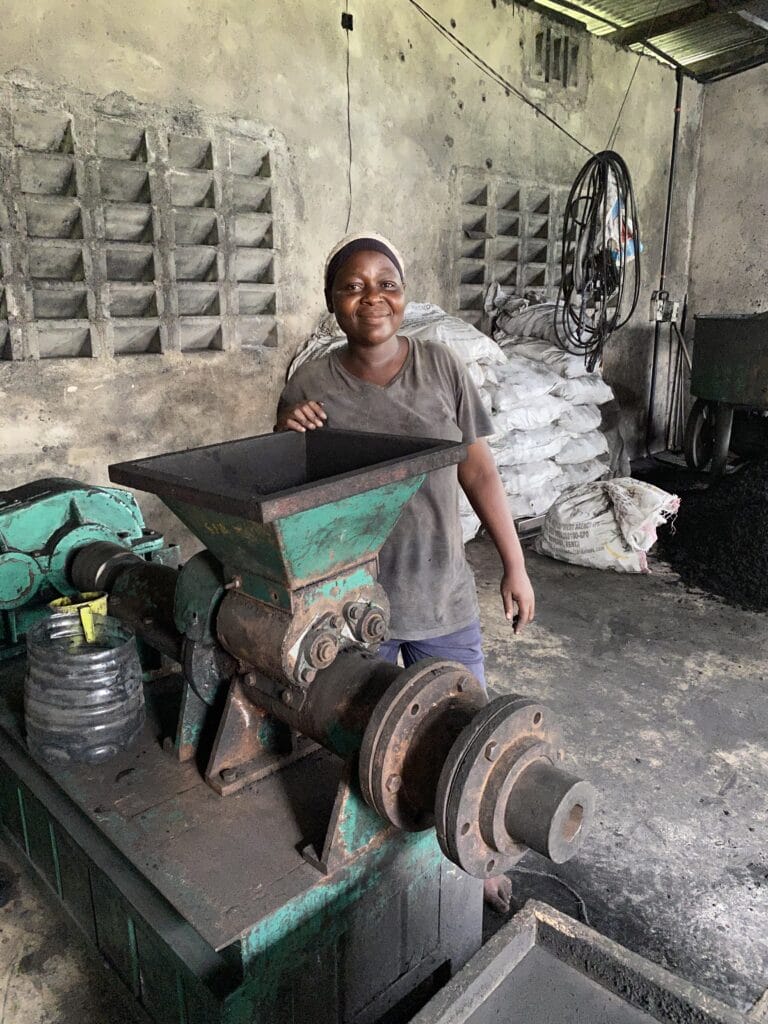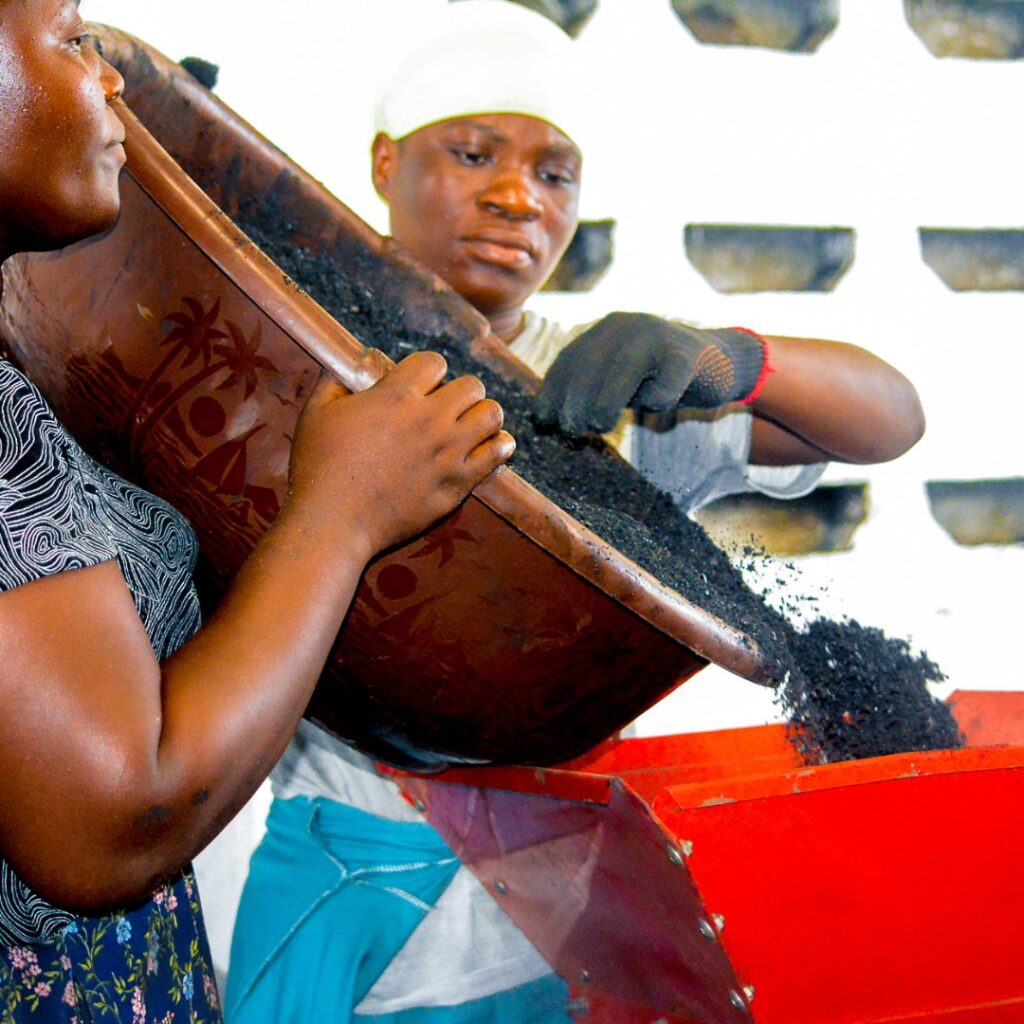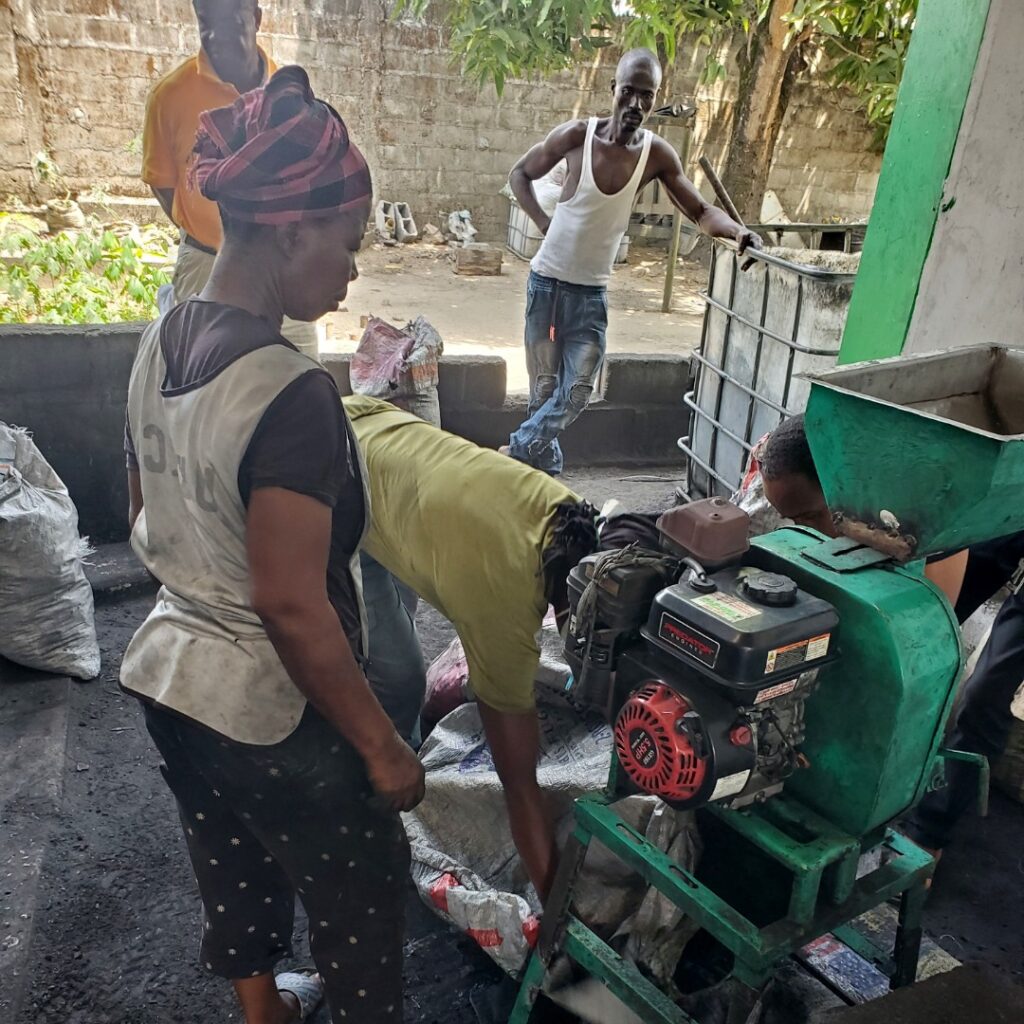The Opportunity
Clean burning charcoal briquettes have started to gain traction recently as viable clean alternatives to traditional charcoal or other biofuels. The feedstocks used to create briquettes vary, but include agricultural residues and other raw materials, most commonly bagasse and sawdust. However, coconut waste (shells and husks) also provide a viable alternative feedstock, which has often been overlooked. Fatin Ibrahim, a volunteer researcher with the Charcoal Project (TCP), which supports communities in East Africa to establish and grow small and micro-enterprises in the briquette production sector, recently interviewed two briquette producers who use coconut waste as feedstock. Said Twahir, is the co-founder and CEO of Kencoco, a coconut briquette producer 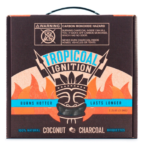
Section 1: Coconut briquettes: entrepreneurial opportunities & socio-economic and environmental impacts
- Coconut Shells as Feedstock: Benefits and Challenges
Although less well known and less commonly used as a feedstock for briquette manufacturing, it is clear from our interviewees, that the unique biochemical qualities of coconut husks are key reasons which drew them to this raw material. Coconut husks have one of the highest calorific values and one of the lowest ranges of ash content (1) compared to other raw feedstocks. Said Twahir, of Kencoco, explained to us that his “customers like them a lot, they are very impressed with the briquettes”. He notes that this is not only because they are “hotter burning” but also because they are smoke-less. Willis Okoth explained that Agricycle Global’s Tropicoal Ignition brand uses three main raw materials; coconut shells, cassava and palm kernels and noted that “coconut shells are the hottest burning feedstock”. From his experience he explained that “1 kg of Tropicoal briquettes have the same calorific strength as 2 kg of traditional charcoal”. Both Said and Willis emphasised the key benefit for customers of using coconut briquettes; although they burn hotter, they still last longer and are therefore more cost-effective and efficient than traditional charcoal. Said has received “good feedback from customers and [gets] many repeat orders” which evidences customer satisfaction with the briquettes. Moreover, the environmental and health benefits of coconut briquettes are also key for both Kencoco’s local customers, who “particularly like their USP [unique selling proposition] – the environmental benefits,” and for Tropicoal’s export market customers, who respond to the positive impact on forests.
- Socio-Economic Impact: Partnering with Community Groups – Uses and Benefits
One of the key social benefits of coconut briquette enterprises is their mutually beneficial partnership with community groups who add value by either sourcing the raw material or at the production and distribution stage. Moreover, both Kencoco and Agricycle mainly partner with women’s groups on the ground. Said describes his collaboration with “small women’s groups, who get together and see opportunities to make extra income”. Kencoco collects coconut shells from different women’s groups each week. Women’s groups are also involved in the carbonization and production of briquettes. Willis similarly describes partnering with “youth groups in the community (mainly comprising women)” across the production chain. These groups “collect the coconut shells and palm kernels, carbonize the feedstock, create the finished briquettes and package and ship them”.
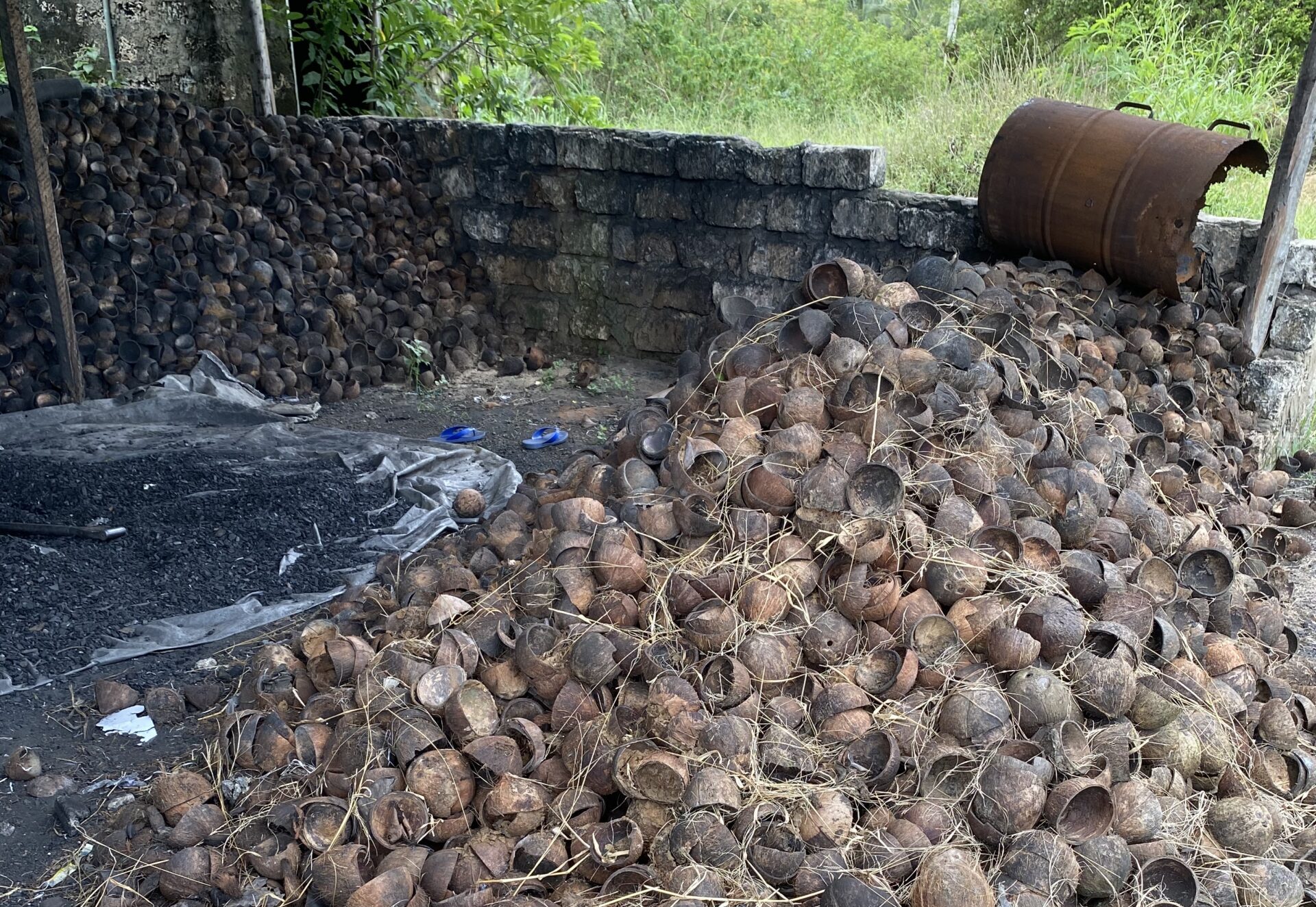
- Environmental Impact
As with other raw biomass used for feedstock in briquette making (such as bagasse and saw dust), the environmental benefits of coconut briquettes are manifold. As Agricycle’s Willis explains; “firstly they utilise waste raw material like coconut shells, which would otherwise rot and emit greenhouse gasses”. Secondly, he explains that the creation of clean charcoal from waste raw material saves trees from being cut down for firewood or to create traditional charcoal. Moreover, Said provided a compelling example to illustrate this: “for every tonne of briquettes produced, you save a few hundred trees”. This is compounded by the fact that briquettes last longer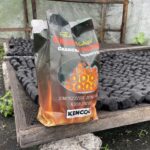
Section 2: Key Challenges
Willis and Said described the many socio-economic and environmental benefits of their coconut briquette enterprises. These range from the provision of clean cooking fuel alternatives to providing a viable business model which improves the livelihoods of communities, especially in supporting women workers. This triple benefit approach has proven successful and resilient even during the pandemic (3). However, both interviewees reported that once their coconut briquette enterprises were established and operating, they faced their biggest hurdle: scaling up and growing their market share.
- Common obstacles
Though both Kencoco and Agricycle Global’s coconut briquette production facilities are based in East Africa, they focus on differing markets. Kencoco, based in Kenya, produces coconut briquettes and sells to households and businesses in Kenya, while Agricycle Global, produces coconut briquettes under its Tropicoal Ignition brand for sale mainly to the US export market. Although these different business models present their own unique challenges, both Said and Willis highlight several shared obstacles. These shared challenges include transportation and fuel costs, regulatory barriers and training and retention of staff which have, in turn, had a detrimental effect on their ability to manage and control costs.
- Transportation
Willis explained that transporting the feedstock from the collection area involves an 11-hour drive to the processing site along a road which often floods during heavy rains. This results in delays in transportation of the raw material and in turn delays the processing of the feedstock and delivery of the completed briquettes to customers. In order to mitigate this Willis is looking to diversify his sources of raw material from closer sites. Other issues related to char-dust leaking from packaging during transportation. Agricycle addressed this by inserting recyclable liner in each pack, which has prevented leaking.
Said also cites transportation as a major challenge which impacts his ability to control costs. He explains that fuel price and cost of transport is their main obstacle when feedstock is gathered from further away. Increased transport costs mean an increase in the price of briquettes when delivering or a reduction in Kencoco’s profit margin. He tries to mitigate by looking for the cheapest means of transport available, for example asking to transfer his briquettes on the weekly vegetable truck which moves between Nairobi to Mombasa. This is much lower cost than private transportation but is not always reliable.
- Regulatory
Both Willis and Kencoco describe the different regulatory hurdles they experience as clean charcoal manufacturers. Said is clear that “regulation is key”. He explains that associations which manage clean energy e.g. The Clean Cooking Association of Kenya need to lobby the government to reduce tax on clean charcoal briquettes. He explains that there is currently no VAT on firewood which keeps its price low in comparison to briquettes which are excluded from this exemption. Even traditional charcoal would have been cheaper than briquettes due to this variable tax treatment, in the absence of the charcoal ban, which led to prices soaring. Willis also highlights transportation issues, but these mainly relate to the documentary compliance required when exporting and shipping finished products abroad. He explains they had previously underestimated the time frame of these regulatory processes resulting in delays to shipping of their briquettes. However, they are now familiar with the processes and documentation required and have aligned their processes which avoids shipping delay.
- Specific challenges
Our interviewees also touched on some unique challenges, especially in managing their costs, which they each face relating to their specific business models and markets. Willis explains his biggest challenge in managing costs has been related to collecting large volumes of raw materials within a short period of time to meet urgent orders. 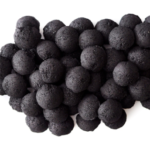
Meanwhile, Said explains Kencoco’s biggest challenge in managing costs has been increasing fuel prices for transporting raw material to the factory and the finished product to customers. This is a big obstacle which is difficult to mitigate, he explains “it now costs more to reach customers and to transport raw material from sources to the factory”. This challenge has been compounded by Covid-19, which meant, “fuel costs doubled as the government increased taxes on petrol and electricity,” as it looks to increase revenues to offset the economic impact of lockdowns.
Section 3: Beyond Survival – Scaling Up, Growing and Thriving
Agricycle’s production is currently in East Africa, mainly in Liberia and Tanzania, but they are not yet producing at scale. The major obstacle to scaling up their production has been related to the carbonization and drying process of briquettes which is done outdoors and is therefore impacted by rain and changes in weather. They have particularly struggled to keep the coconut shells dry and so have had to build a storage centre to protect the shells during rainy weather or pay for such storage.
Kencoco’s biggest obstacle in scaling up is related to its domestic target market. Said explained that customer awareness of clean charcoal is lacking and poses the biggest risk to growth. As Said elaborated, “the main challenge was to get people to adopt it”. This is despite the positive reviews and feedback he receives from his customers once they try the briquettes. Said believes the key to addressing this is for clean cooking organisations to “raise awareness amongst people for use of clean charcoal [which] would help hugely”. Said also cited challenges related to training staff to use new technology in manufacturing of coconut briquettes. High turnover in staff increases training costs and impacts production. He explained that “many only work a short period and then leave.” Said believes this might be because he employs youth workers (between 18-35 years old) who are often looking for temporary work between studies or other work. In addition, he employs mainly women, several of whom have departed for family reasons. He also lost workers due to the COVID-19 lockdown.
Beyond these hurdles, the costs of scaling up which requires the purchase of new expensive machinery and production facilities often means access to finance can be a potential obstacle to small coconut briquette enterprises. Said, who founded Kencoco, told us he “initially approached family members for capital contributions to get started” and provided the remaining amount himself. He then secured the grant from outside investors in the clean briquette sectors in 2016 which enabled him to grow. He says access to finance can be an obstacle “in some cases but not generally”. He explains that “most people build factories without access to finance”. However, he explains that scaling requires “updated machinery” which is not available domestically. At the start Kencoco relied on small locally made machines for producing briquettes but this impacted on the quality of the briquettes. He eventually purchased a new machine from China “which then produced really high-quality briquettes.” Agricycle on the other hand raises funds for its projects such as Tropicoal Ignition from US based investors including social impact venture MaSa as well as through Kiva Loan, a crowd-sourced lending platform which works largely with small businesses in Africa.
However, despite these hurdles both Said and Willis outlined their promising growth plans for their coconut briquette enterprises and remain hopeful about the post-COVID-19 recovery. Kencoco is looking to grow by adding an additional business line: “producing cookstoves for briquettes for commercial use” to sell to hotels. Said explains the synergy this would create by selling cookstoves along with briquettes to burn in them. He also envisages the production of large cookstoves for commercial use for export to other neighbouring countries. In addition to coconut briquettes, he is looking to partner with another enterprise to produce non-carbonized briquettes made from sawdust which can directly substitute for firewood. Willis explained that Agricycle (based in the US) is still at an early stage of production and distribution of coconut briquettes. They are focussed on the US export market but still only have small-scale manufacture capabilities as they are testing their products to gauge performance in the US market. Agricycle is looking at expanding distribution to Europe and to the regional market in East Africa, including Kenya, Tanzania and Uganda. The company is still developing its marketing strategy and pricing, which need to be tailored to these different markets.
CONCLUSION Our interviews with Willis and Said have highlighted some of the many challenges and obstacles they face as coconut briquette producers. Some of these hurdles, relating to carbonization and production, are unique to the use of coconuts as feedstock but most illustrate the common hurdles which clean charcoal producers face. These range from transportation issues, training of staff and raw material supplies, to regulatory barriers, which continue to hold back the growth of the sustainable and socio-economically beneficial clean cooking fuel sector. Such hurdles are not, however, insurmountable as shown by TCP’s recently published Policy Brief (Challenges and Opportunities for Charcoal Briquette Enterprises in East Africa), which makes policy recommendations to governments and NGOs to practically address many of the hurdles discussed. These recommendations include increased support by governments and NGOs to the briquette sector to increase awareness and financial support as a cleaner cooking alternative. TCP also underlines the need for effective enforcement of charcoal regulations to “place briquettes on an even playing field with respect to taxes, labor costs and government regulation”. These policy recommendations heavily mirror our discussions with Willis and Said on how enterprises like Kencoco and Agricycle can be allowed to grow and scale sustainably.
Notes:
(1) Urban Briquette Making Pilot Study, Centre for Technology and Climate Change (22 January 2020)
(2) This will depend on several factors, including the biomass used and processes followed for producing the briquettes. See https://www.cleancookingalliance.org/impact-areas/environment/index.html
(2) See Clean Fuel, Charcoal Briquettes and COVID-19 (October 30, 2020) by Fatin El-Kabashi Abdullah Ibrahim
About the Author:

Fatin volunteered with TCP this past year providing pro bono legal advice, researching and blogging about TCP’s work in East Africa. She is a recent Georgetown Law graduate. Fatin previously worked as a finance lawyer in London, UK. She is passionate about supporting entrepreneurship and innovation in developing countries and is a longstanding environmentalist. She looks forward to continuing her collaboration with us and supporting our sustainability focussed work.

